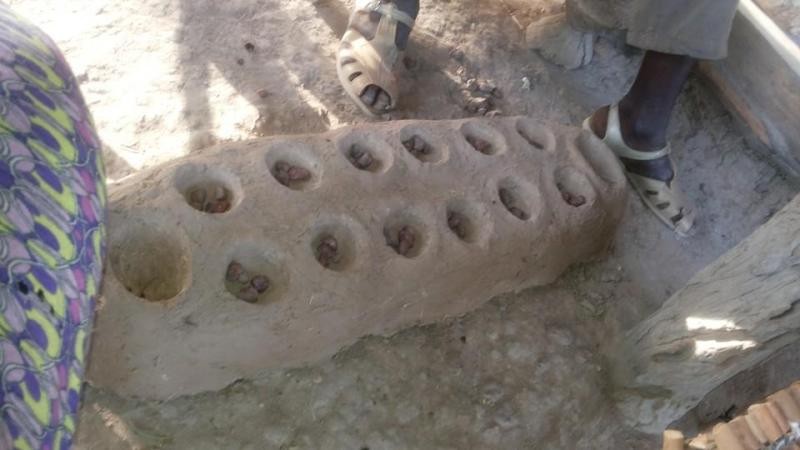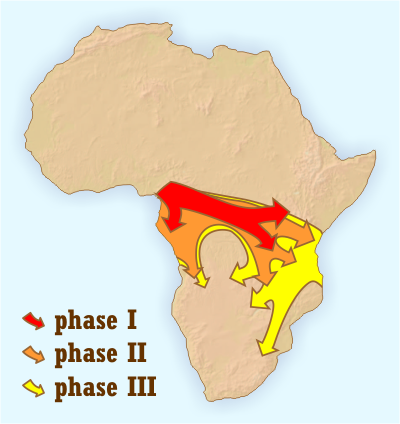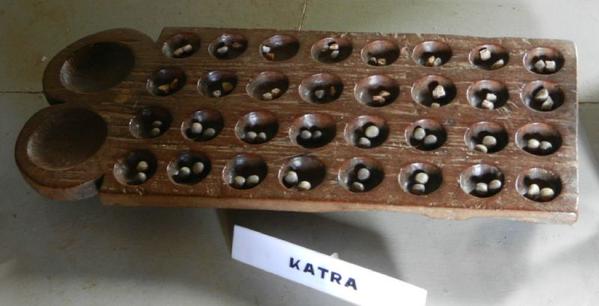Some 7032 kilometers lie between Bamako, the capital of Mali, and Antananarivo, the capital of Madagascar. Yet for centuries now, there have been tangible links between these two countries.
This is not really surprising. Despite the long distance, the two countries (and their neighbours) share a common Bantu heritage. This explains why their cultures have several common aspects.
An ancient strategy game known as ‘Waali’, enjoyed from the villages of the Sahel through to the fishing communities of the Mozambique Channel, bears witness to these important migratory flows and to Africa's intermingling of cultures. It is a traditional game in Mali and, while it has almost disappeared in some parts of the country, it is still being played in some Malian villages.
While the photo at the top of this post shows a game-set made out of clay, there are also sets made of wood. Once played exclusively by kings and their friends, Waali is now played by people from all walks of life.
Lova, a contributing member of Global Voices, notes an important similarity between Waali and a Malagasy game called ‘Katra’. Katra emerged in Madagascar in the 17th century – it was at around this time that a wave of Bantu migration reached Madagascar's shores.
Lova writes on twitter:
Ressemblance fascinante entre le Waali, jeu Malien http://wp.me/p4FZv7-g1 et le Katra, jeu à Madagascar.
There's an interesting resemblence between Waali, a game from Mali http://wp.me/p4FZv7-g1 [Fr], and Katra, a game from Madagascar.
After this photo was shared, several web-users responded by pointing out similar games in their respective countries.
Nene Ba, a friend from Daka, pointed out the existence of a similar game in Senegal:
Chez nous, ça s’appelle le Wourè
We call this game ‘Wourè’ in Senegal.
Mina Harker shared an image of a similar game known as ‘Awalé':
Je l’ai acheté en France en 2002 dans une boutique qui faisait de l’artisanat africain. La vendeuse m'a dit que celui que j’ai arrive de la Côte d’Ivoire.
I bought a set in France in 2002 in an African crafts shop. The shopkeeper told me that it came from the Ivory Coast.
Mina also shared a link to information about the game's origins and its rules:
Le but du jeu est de récolter un maximum de graines. Il se pratique à 2 joueurs qui se font face avec devant eux 6 trous. S'il y a d'autres trous, ils servent à engranger les prises. On dépose 4 graines dans chaque trou
The goal is to ‘harvest’ as many seeds as possible. It is played between 2 players and the board usually has 6 pockets. If there are more than 6 pockets, then the extra pockets are used to store seeds that have already been harvested. You put 4 seeds into each pocket.
Mina adds that there's also another variation in France:
En France, on faisait ça dans la terre à 24 trous. quand j’ai trouvé l’Awalé en 12 trous, j’ai pas hésité a le prendre, pratique à transporter pour jouer. En revanche, je ne connais pas le nom du jeu. On faisait les trous dans la terre on mettait des cailloux et on jouait. Apparemment ce jeu se joue aussi au Brésil.
In France, we played by digging 24 holes in the ground. When I found a 12-pocket version called Awalé, I did not hesitate to buy it. It was portable and convenient. That said, I still don't know the name of the 24-hole version. We would dig the holes into the ground and used pebbles to play. I've heard that this game is also played in Brazil.
Sy Sye provides some further information about the game:
Ce jeu existe dans beaucoup de pays, moi je l’ai connu au Ghana où il s’appele Oware. Cet article dit que le jeu est censé être d’origine Akan, soit du Ghana et/ou de la Côte d’ivoire, et qu’il est répandu un peu partout en Afrique. On peut aussi noter l’apparente similarité des noms de ce jeu, ce qui rend bien vraisemblable une origine commune.
This game exists in many countries. I first found it in Ghana, where it is called ‘Oware’. This article says that the game is supposed to be of Akan origin – maybe from Ghana and/or the Ivory Coast. It also says that the game is played pretty much all throughout Africa. The different names given to the game often sound similar and this suggests that the game's different regional versions all have a common beginning.
The names of the various different versions are: Oware (Ghana), Ayò (Yoruba), Awalé (Ivory Coast), Wari (Mali), Ouril or Uril (Cap Verde), Warri (Caribbean), Wali (Dagbani), Adji (Ewe), Nchọ (Igbo), Woure (Senegal) and Awélé (Ga).
If you know of any other versions of this game, share them with us on twitter (@fasokan or @globalvoices) or in the comments section below.
This article was first published via ‘Quand le village se réveille‘ [Fr] [tr: literally ‘when the village wakes up’] – a Rising voices project. It was reformatted with permission from the project's members.











7 comments
I found this game somewhere. Not sure where but it might have been in Kenya and I looked for information about it. I found this post from the Eliot Avedon Games Museum at the University of Waterloo in Canada. http://www.gamesmuseum.uwaterloo.ca/VirtualExhibits/countcap/pages/index.html
Omweso in Buganda, Central Uganda.
https://www.google.rw/url?sa=t&rct=j&q=&esrc=s&source=web&cd=1&cad=rja&uact=8&ved=0CBwQFjAA&url=http%3A%2F%2Fen.wikipedia.org%2Fwiki%2FOmweso&ei=LWpUVYrLD8L5UPG4gJAB&usg=AFQjCNEkXv14NyQSPfXOBeqa6Zko8DpxQQ&bvm=bv.93112503,d.d24
This game is found all over Africa but infact Madagascar and Africa share few cultural links and what is most surprising about Madagascar is how very un-African it is, even when the area is African descended.